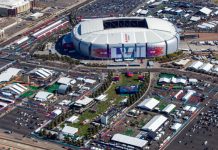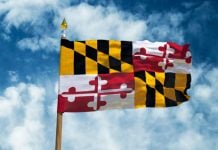Geolocation is an essential tool to have to be an effective and compliant business in the North American online gaming space. Being able to identify where players are located and whether they are indeed within the state lines is crucial to comply with state laws.
Radar is a geolocation platform provider, with several years of experience servicing varying sectors outside of gaming. Now, however, the firm is offering its services in the US to help operators have the most seamless and easy to use platform to remain compliant.
Nick Patrick, CEO of Radar, chats with SBC Americas to explain its geolocation expertise and why he believes the industry needs a new provider.
SBC Americas: Please could you introduce Radar to our readership and let us know what products and services you offer?

Nick Patrick: Radar is a geolocation platform. We’ve long been the industry leader in geofencing, processing over 100 billion API calls per year from over 100 million devices and powering geofencing and maps for brands like DICK’S Sporting Goods, T-Mobile, Panera, and Zillow.
Last year, we brought our geolocation technology to the gaming space, offering a developer-friendly, cost-effective alternative to GeoComply. We’ve been overwhelmed by the response from operators, and we already have a fast-growing roster of gaming customers across online DFS, casino, sportsbook, sweepstakes, and horse betting use cases. Our gaming customers include Sleeper, Everi, Ballers Sportsbook, Fliff, 1/ST, and more.
SBC: Radar has vast experience in providing geolocation services to other industries. What kind of experience do you have and what opportunities do you foresee in gaming?
NP: Radar’s vision is “location infrastructure for every product and service.” We’ve spent the last 8 years pushing the limits of geolocation accuracy, efficiency, and reliability. Outside of gaming, we power use cases like highly accurate drive-thru arrival detection for restaurant apps, indoor location for retail apps, or location tracking and spoofing detection for logistics apps. We’ve optimized our location infrastructure so we can serve these use cases extremely cost-effectively. And we handle Super Bowl-like traffic spikes on a weekly basis, processing over 100 billion API calls per year.
Our technology translates naturally to gaming use cases, like detecting which state a player is in or which part of a casino a player is in. And the accuracy, reliability, and cost-effectiveness of our technology is unparalleled.
SBC: Geolocation is a crucial part of the gaming industry given the tight state gambling laws. How essential is it that operators have a robust geolocation provider and how can what makes Radar the ideal partner?
NP: Very important. Online sportsbook and igaming operators in the US need to verify a player’s location. And with increasingly complex state-by-state rules, and new states going live every few months, partnering with a robust geolocation provider is critical.
Unfortunately, online gambling operators historically haven’t had many options. Radar is changing that.
SBC: How would you assess the geolocation market in North America in the gaming industry and what are you trying to do to disrupt this market?
NP: Most online gambling operators rely on a single geolocation vendor. Many operators are even contractually forbidden from evaluating alternatives.
Lack of competition generally results in unfair prices, lack of innovation, and lack of redundancy. But with Radar’s entry into the gaming space, this is changing.
In the future, we think most operators will adopt more developer-friendly, cost-effective geolocation solutions like Radar. Or they’ll have a “waterfall” of multiple geolocation vendors, like most operators do for KYC.
Competitive markets are good for consumers, driving lower prices and stimulating innovation. Over the past year, we’ve had dozens of conversations with leaders in the gaming industry, from tier one operators to trusted vendors to regulators to compliance experts. Virtually everyone agrees: viable, cost-effective geolocation alternatives are needed. Radar is here to meet that need.
SBC: From a technological standpoint, what is the key benefit of leveraging Radar’s platform and what are the key features of your solution?
NP: Cost is a big differentiator. Because we’ve spent the better part of a decade optimizing our location infrastructure, we can sustainably offer pricing 50-90% lower than alternatives. We also price differently than incumbents. Pricing is based on monthly tracked users, not location pings, making it easy to forecast costs, check a player’s location as often as needed, or enable new use cases.
But it’s not just about cost. We’re also competing on developer-friendless and extensibility.
Radar’s developer-friendliness is unique among geo-compliance solutions. We’re the only geo-compliance solution with open developer docs, open-source SDKs, and self-serve signup. This is a breath of fresh air for product and engineering teams in the gaming space.
Beyond geo-compliance use cases, Radar can power other use cases like location-based messaging, on-property app experiences, address validation and mapping, and more. Radar also integrates seamlessly with other tools that operators use, like Segment, Braze, and AWS to name a few.
SBC: What are your plans for the continued rollout of your product in North America in 2024 and what can readers expect to see from Radar this year?
NP: As our roster of gaming customers grows, we have three priorities in 2024.
The first is continuing to invest in our product, especially our back office and reporting capabilities. Multiple large operators are actively evaluating Radar, and we’re getting great feedback about where existing solutions are falling short.
The second is continuing to invest in state gaming licenses. We’re ready to operate in seven jurisdictions, have applications filed in 10 more, and expect to be licensed as a vendor or supplier in all remaining states where online gambling is legal by the end of 2024.
The third is continuing to build awareness and grow our brand in gaming. Expect to see us at conferences like SBC Summit North America, G2E, and more. And expect some big announcements at Radar IRL, our annual flagship conference, in September.













